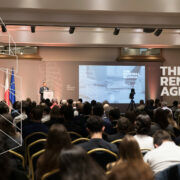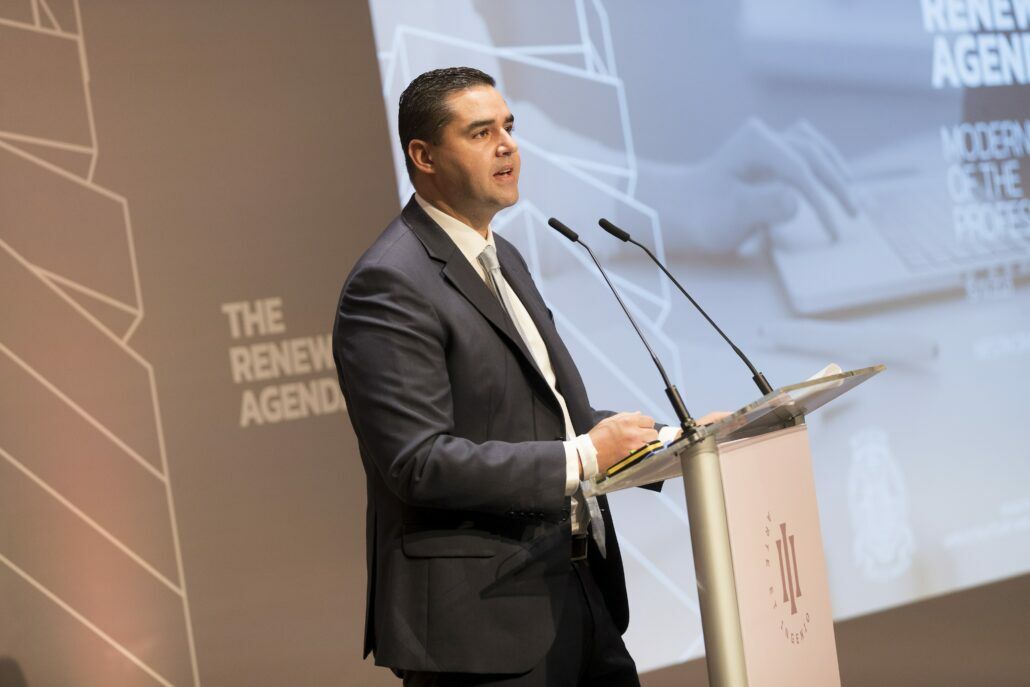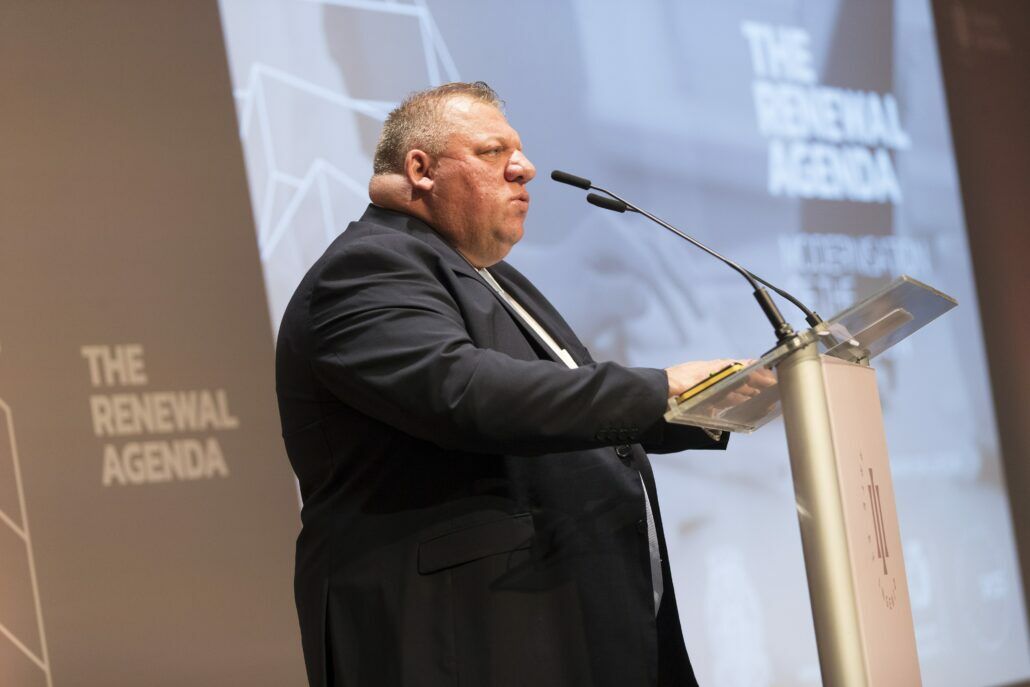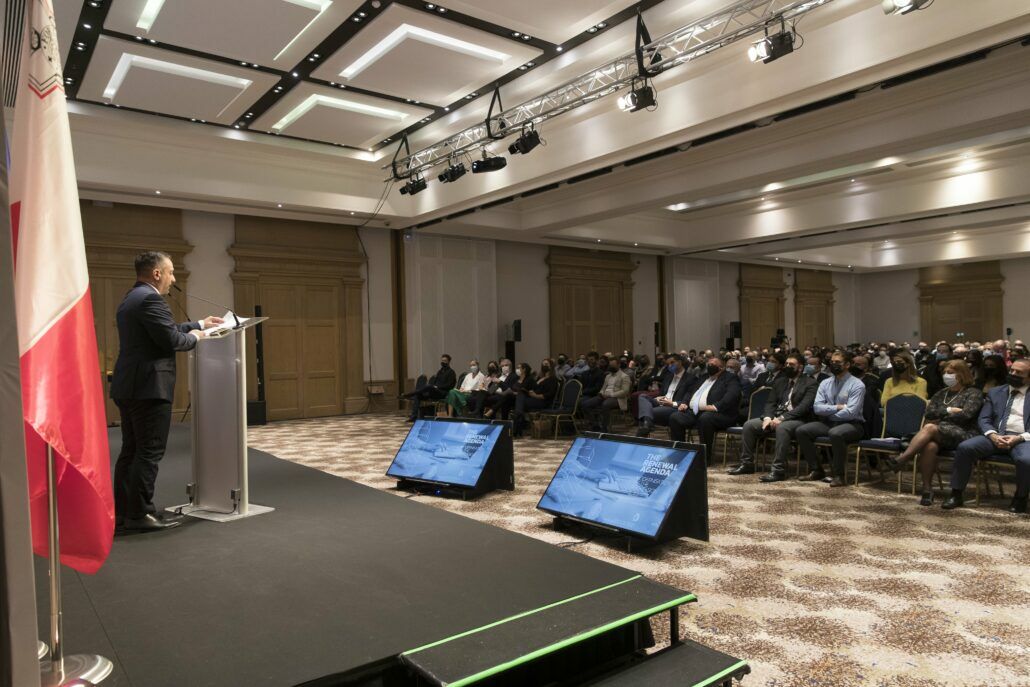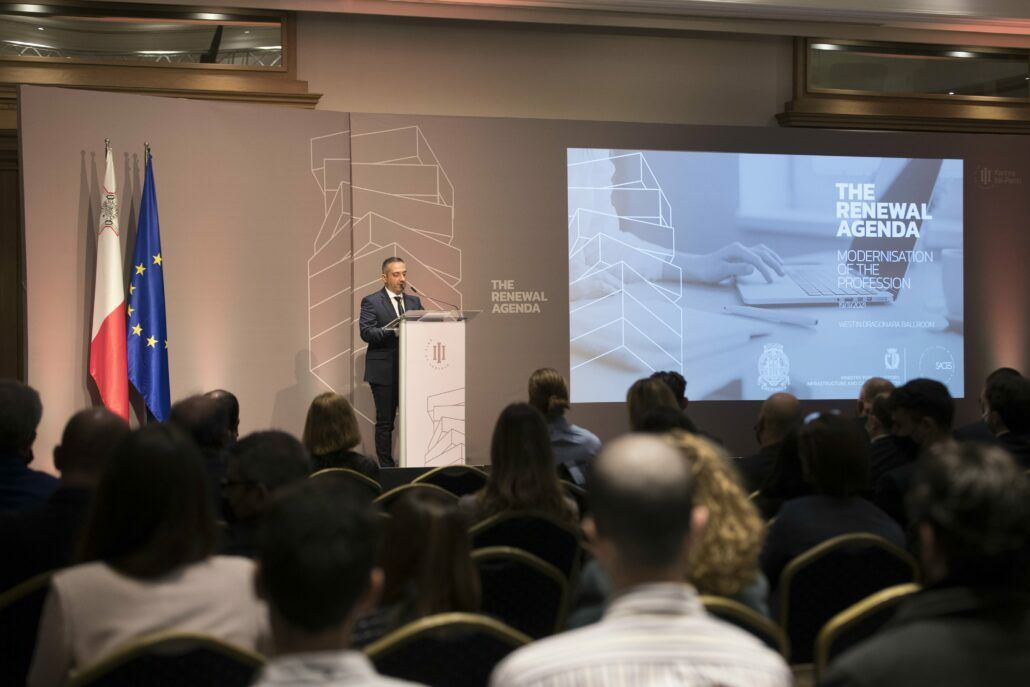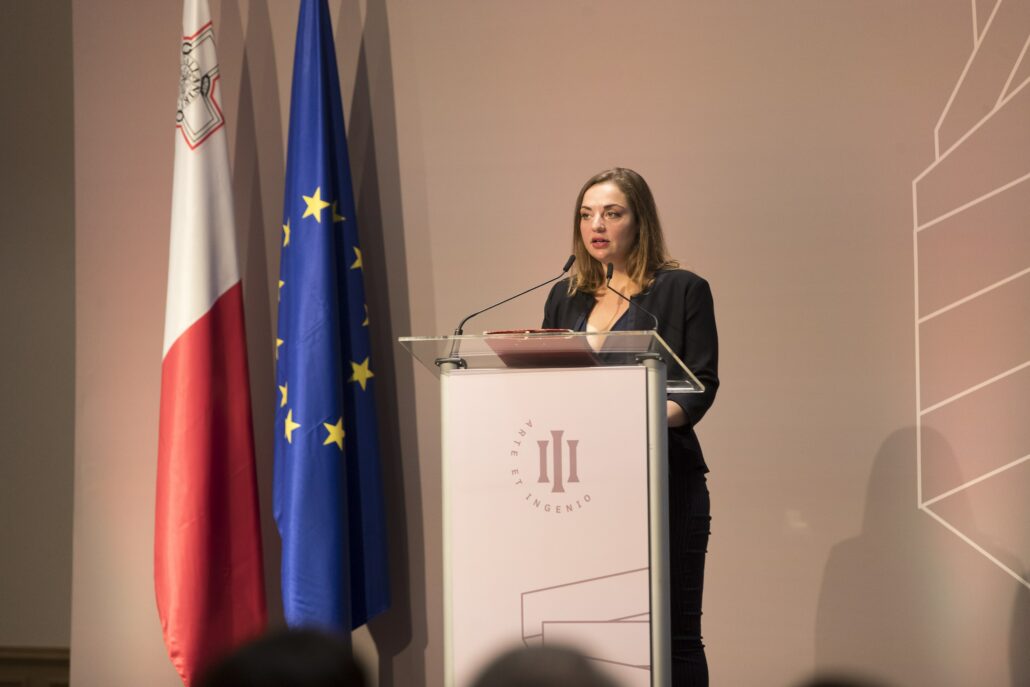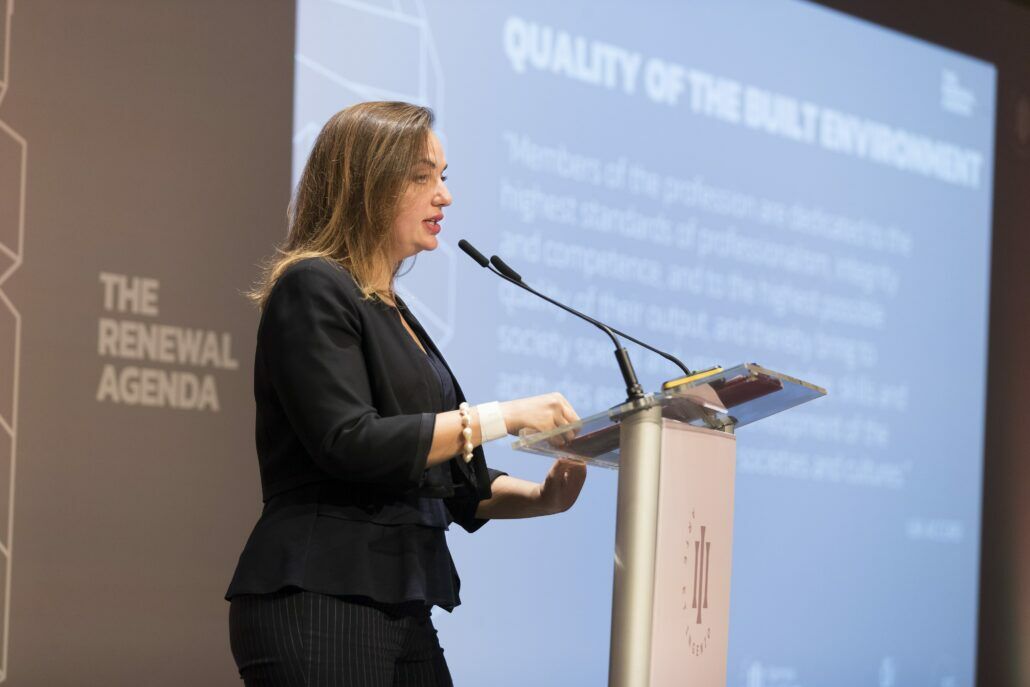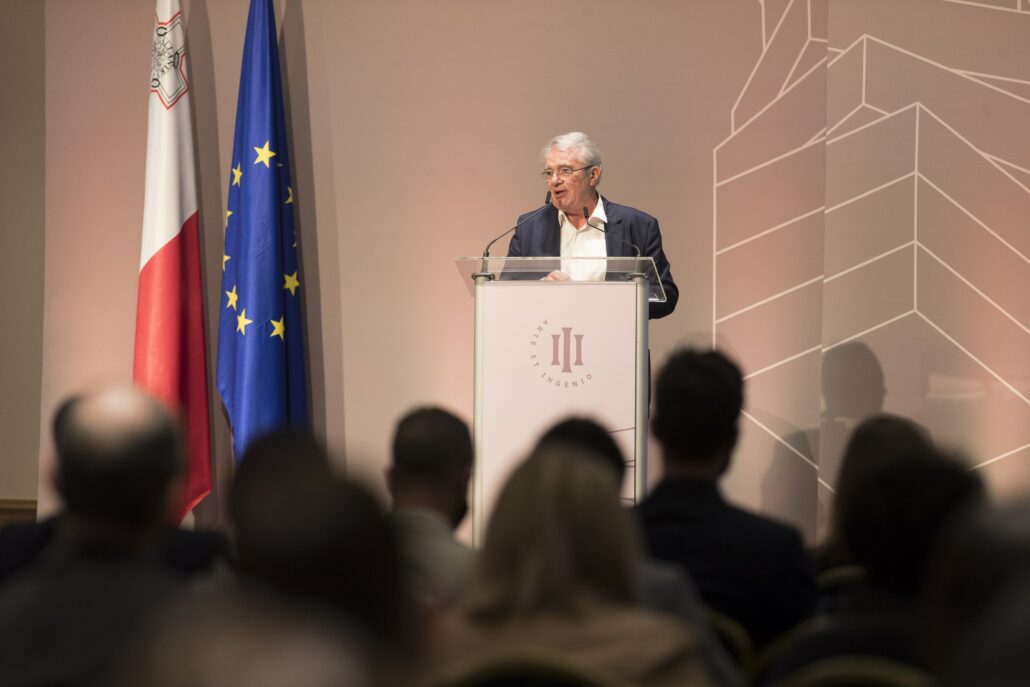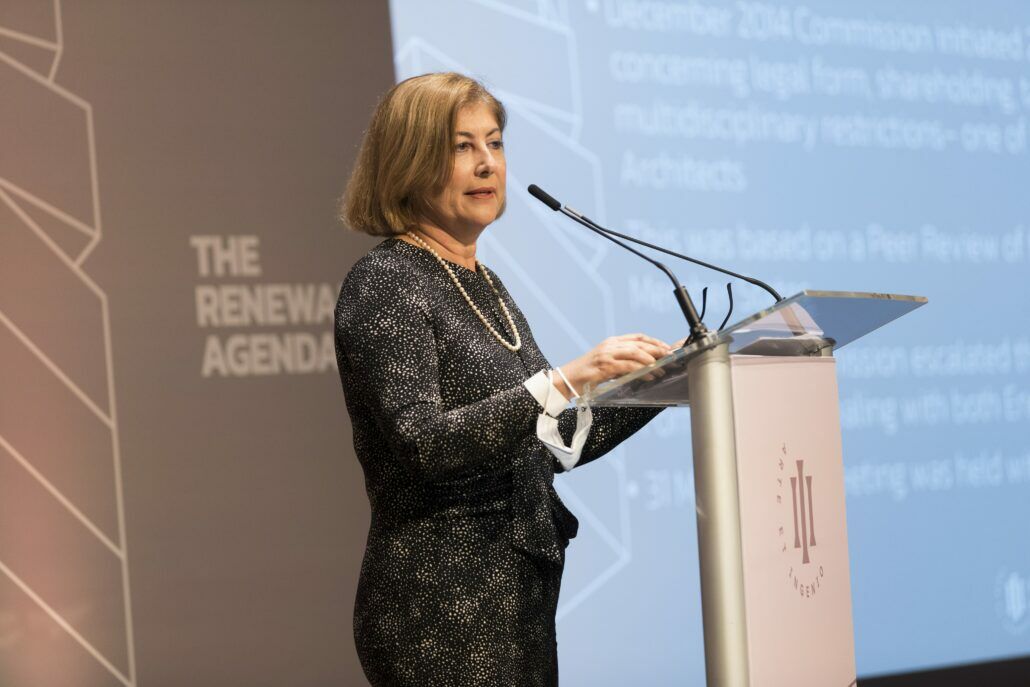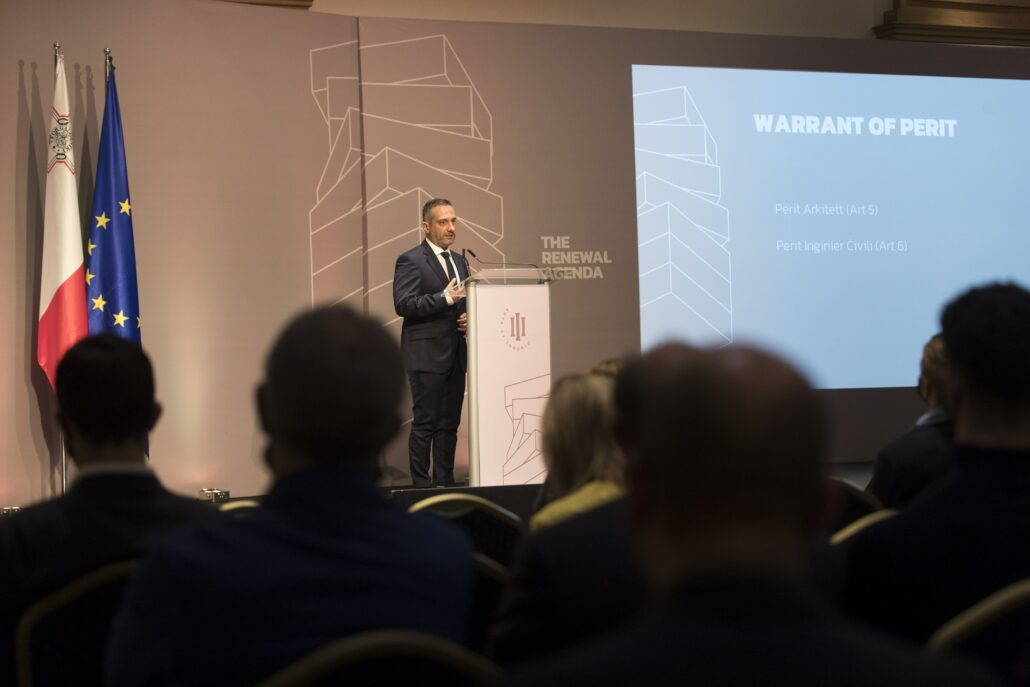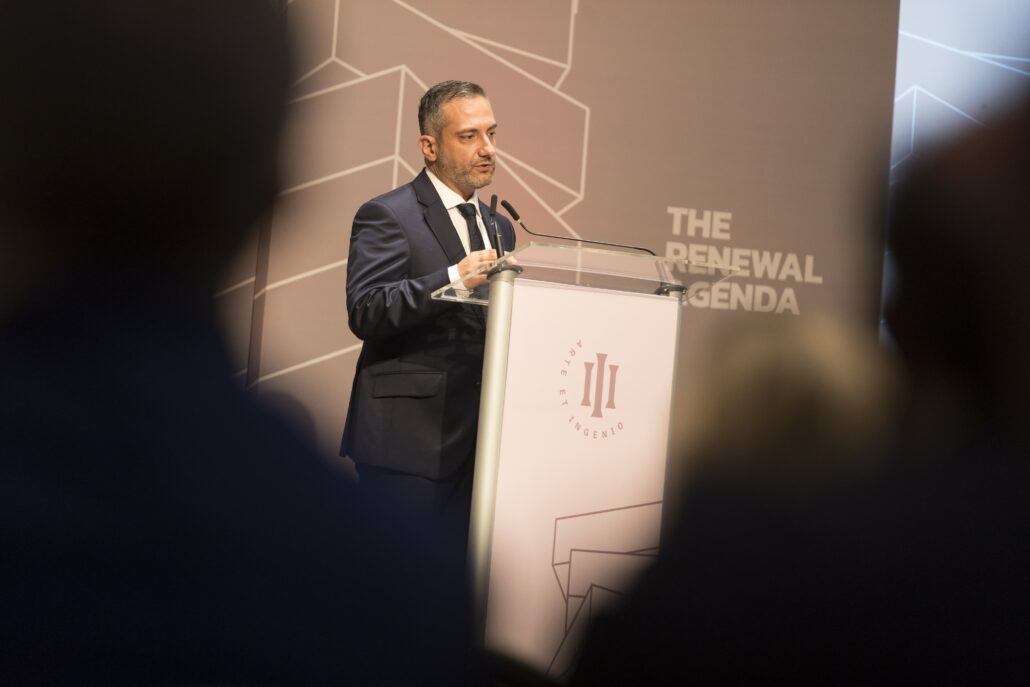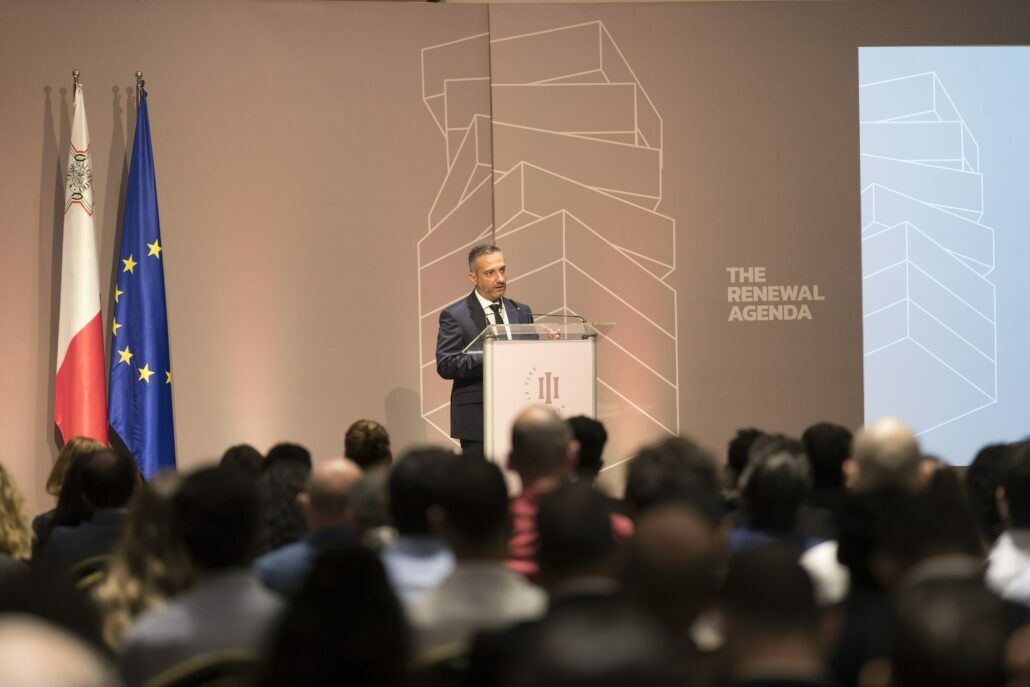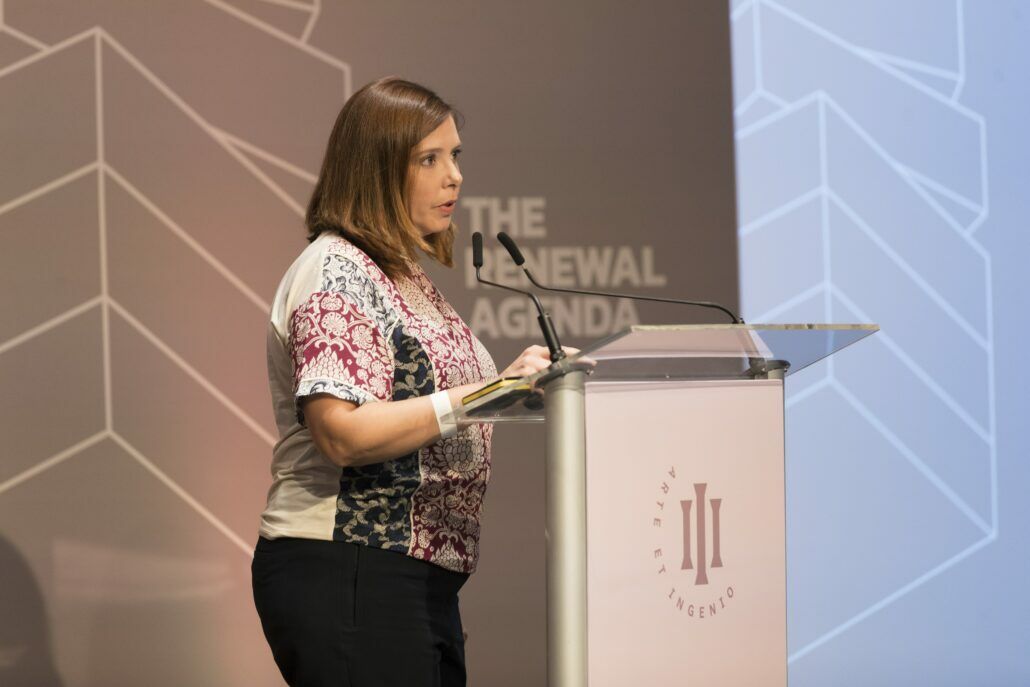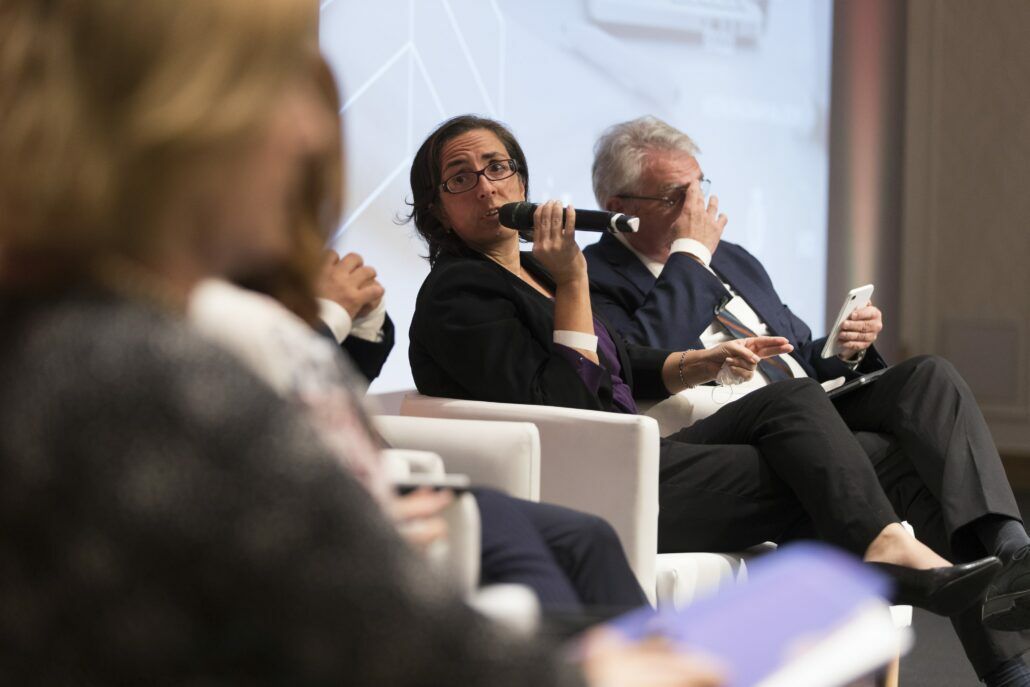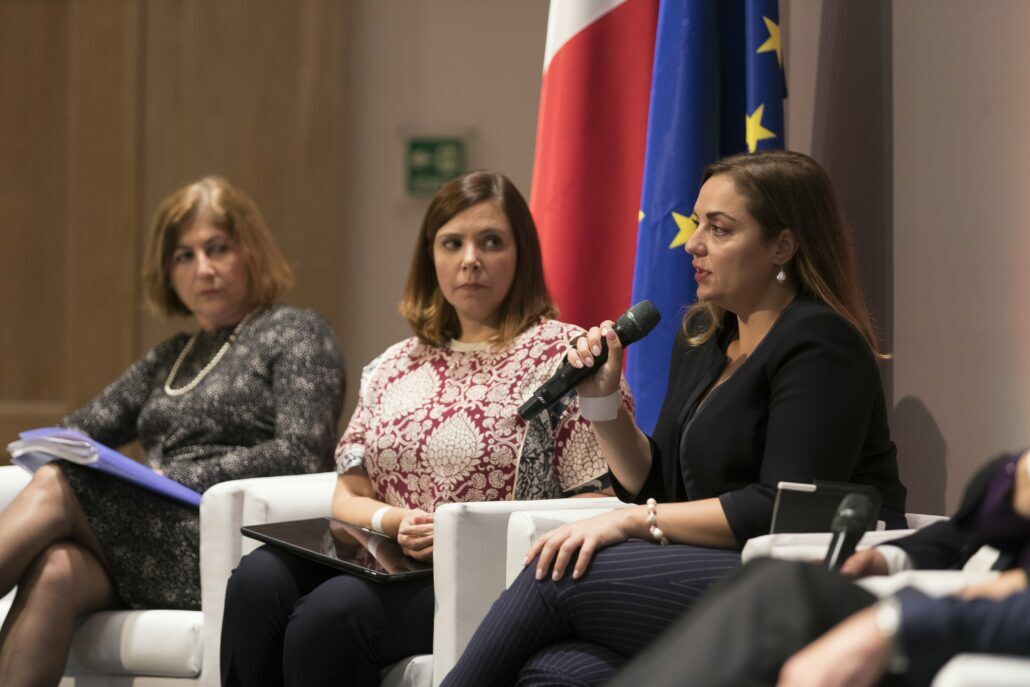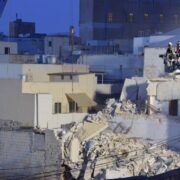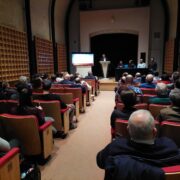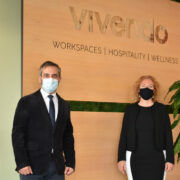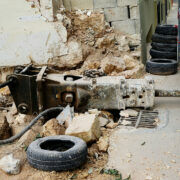PR 08/21 | Periti Act to initiate modernisation of the profession
Verżjoni bil-Malti
On Friday, the Kamra tal-Periti, in collaboration with the Ministry for Transport, Infrastructure and Capital Projects and SACES, organised a conference entitled The Renewal Agenda: Modernisation of the Profession. The event follows the unanimous approval by Parliament, earlier this year, of the new Periti Act: a historic milestone that marks the culmination of a 14 year-long wait.
The Council and the Ministry have now concluded the first tranche of subsidiary legislation necessary to bring several provisions of the act into force, and the transition from the old to the new Periti Act will begin in the coming weeks. This will initiate a long-awaited process of renewal of the profession, with far-reaching effects that will change the way it is structured, as well as the role of the Kamra, the way warrants are conferred, and new obligations on Periti.
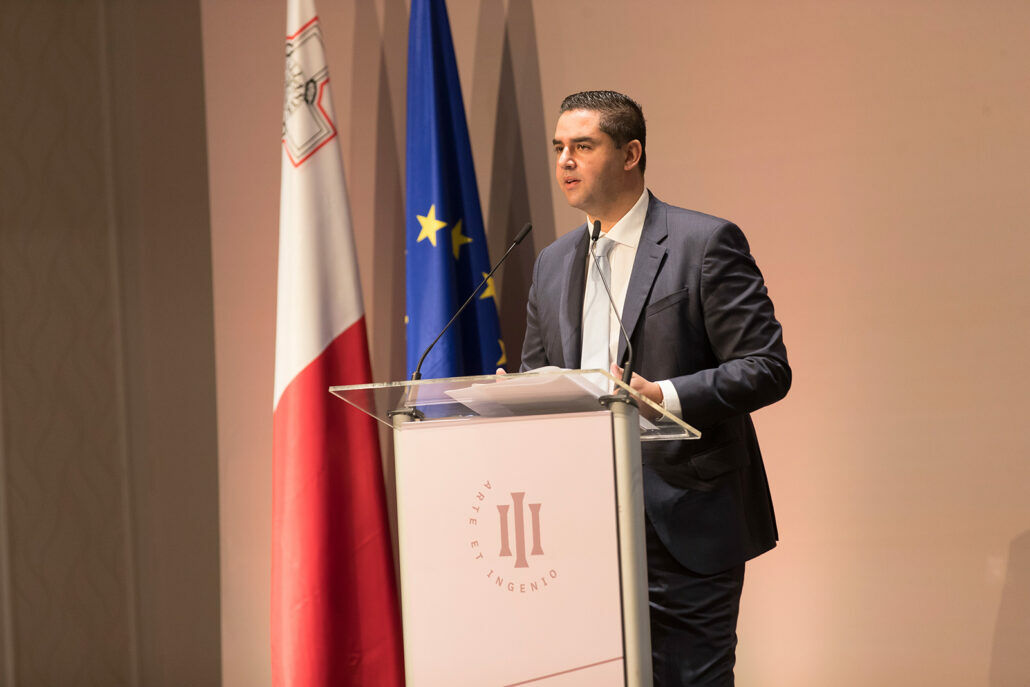
Dr Ian Borg, Minister for Transport, Infrastructure and Capital Projects, outlined the importance of the new Periti Act, which was the result of intense hard work and perseverance, and how it will facilitate the modernisation of the profession for the benefit of the public.
“We introduced provisions that give a broader sense of legal certainty, accountability, security and transparency in the building and construction industry,” Minister Borg said.
He also emphasised how the new Act is underpinned by the value of striving for quality. “It was time to raise the bar even higher and through the amendments made in the new Act we are promising a more qualitative profession with the highest skilled people.”
The subsidiary legislation, which will be brought into effect in the coming weeks, will bring Malta in line with European Directives concerning the performance of the service of architects and civil engineers in Member States. One of the main benefits of this is that the local professional will become recognised on the same level as European counterparts.
Minister Borg concluded his address by announcing that his Ministry is in advanced talks with the Kamra to allocate funds to build a new digital platform whereby new procedures that will be in place in the coming months can be carried out efficiently and securely. He also pledged his commitment to continue supporting the Kamra and the profession to improve the quality of the built environment and meet the ambitious goals that Government has set regarding the environment and climate change, in achieving which periti will play a crucial role.
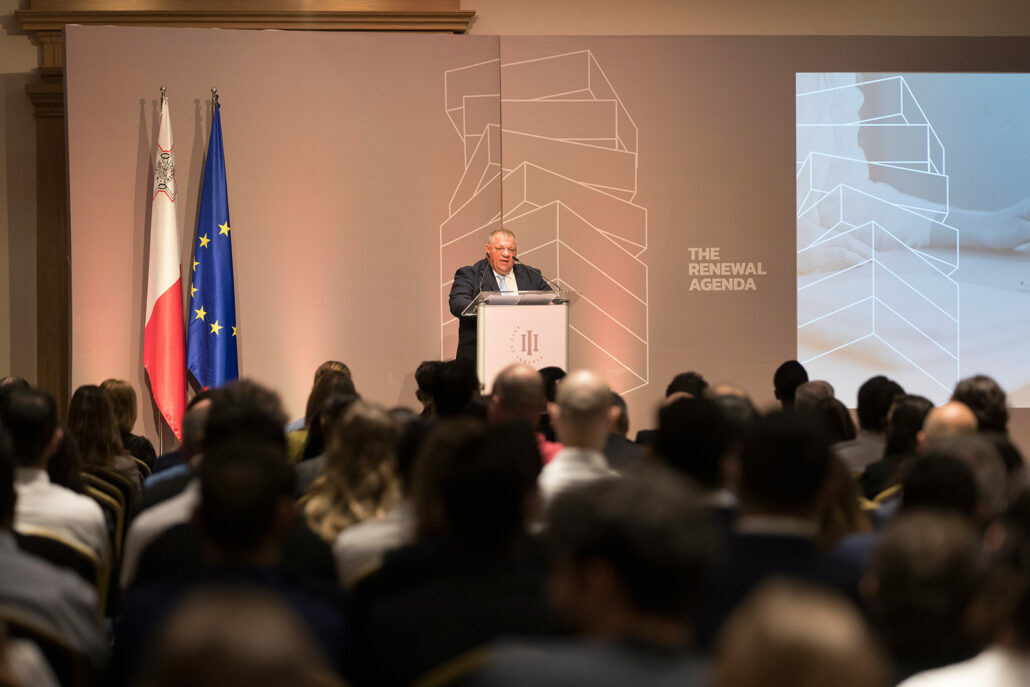
Perit Toni Bezzina, Opposition Spokesperson for Transport and Infrastructure, emphasised the bipartisan nature of the Parliamentary process leading to the approval of the new Periti Act. “We should be truly proud of the political maturity we have displayed in reaching this important milestone,” Bezzina remarked.
Bezzina pointed at the strengthening of the role of the Kamra tal-Periti which, for the past century, has given the highest level of service to the Maltese population. Bezzina went on to state that with the increased responsibility of the Kamra tal-Periti, it can no longer function on a voluntary basis.
“The Opposition recognises the new roles the Kamra was conferred in the law and will thus be ensuring that the Kamra has all the necessary resources to fulfil its new regulatory functions for the benefit of the profession itself, but also for the benefit of all Maltese citizens.”
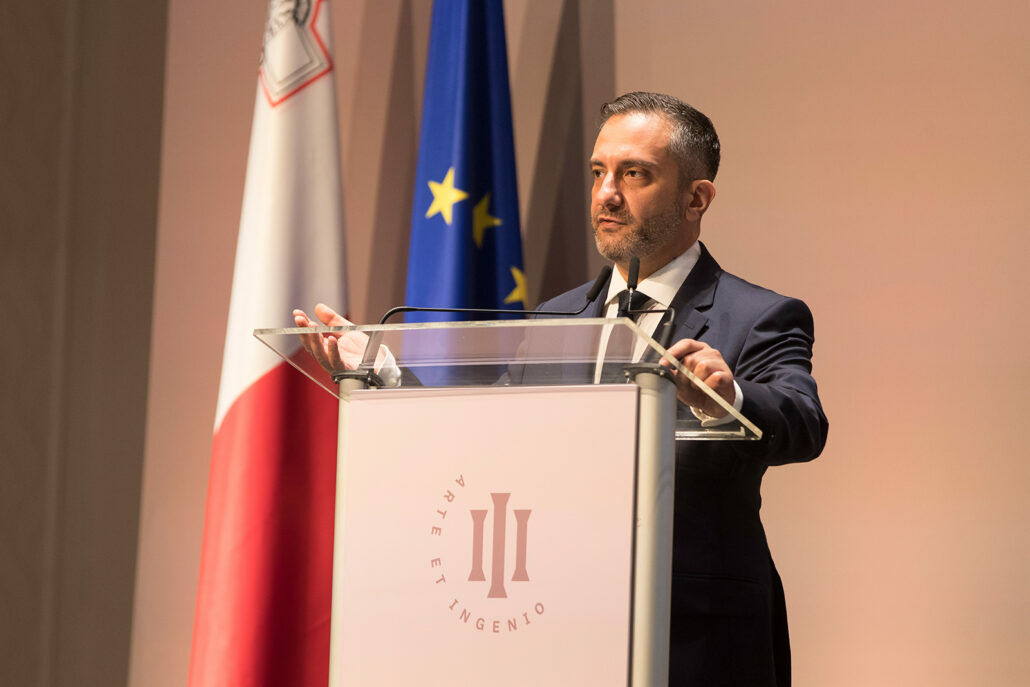
In his welcome address, KTP President Perit Andre Pizzuto stated that the need for the renewal of the profession, the construction industry and Malta’s built environment has long been the focus of the Kamra, albeit largely ignored.
He welcomed the fact that political leaders are recognising the need to address the concerns that are adversely affecting quality of life, such as the erosion of the quality of our built environment, the loss of our cultural heritage, the need to introduce proper building and construction regulations, and the need to protect our environment.
Pizzuto explained that renewal is a process that requires a plan with a sequence of coordinated initiatives whose overarching objective keeps in focus the betterment of the profession, the industry and our built environment.
“The Kamra’s renewal agenda begins with the modernisation of the profession,” he remarked.
Pizzuto stated that the Kamra too needed to modernise, not just because of the legislative changes that are being brought about, but also to reflect the values that embody the profession today, while remaining mindful of its legacy.
To mark the beginning of the renewal process, Pizzuto unveiled the Kamra’s new brand identity.
“The Kamra’s new identity, featuring the three pillars of sustainability, reflects the social and cultural aspirations of today, and will serve as a constant reminder for the profession of its responsibility to promote sustainable development that strikes a balance between the economic, social and environmental needs of the country by harnessing and employing its creative and technical competences,” Pizzuto concluded.
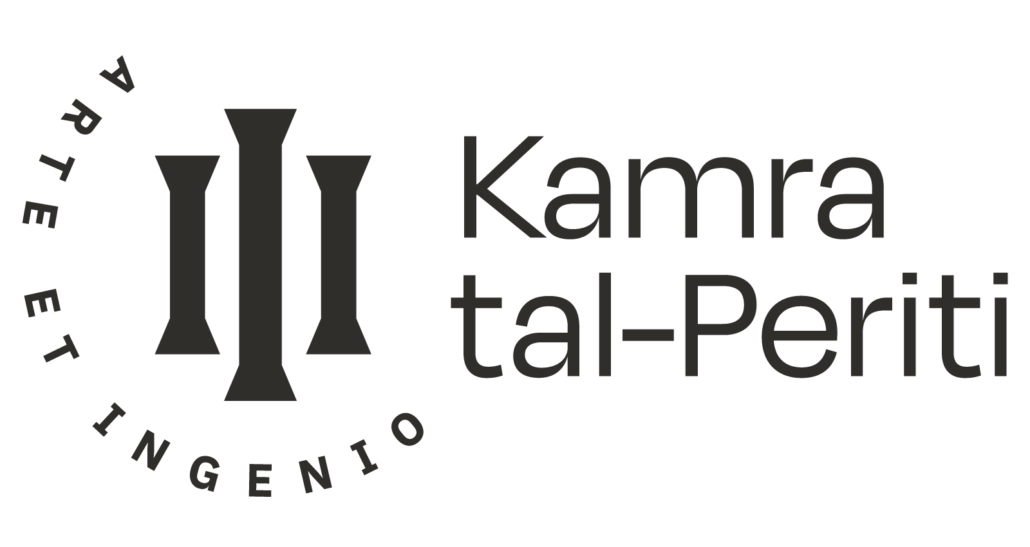
Later in the conference, Pizzuto provided an in-depth review of the changes that will be brought into force with the first tranche of subsidiary legislation.
Presentations on the context that gave rise to the need for the new Act were given by Perit Simone Vella Lenicker, Past President KTP, Prof Alex Torpiano, Dean of the Faculty for the Built Environment, and Ms Lucienne Meilak, Director of the Policy Development and Programme Implementation Directorate at MTIP, who played a key role in the drafting and approval of the Act.
Perit Dr Amber Wismayer, Vice President and Hon. Secretary, KTP, and Perit Dr Jeanette Muñoz Abela, Council Member, KTP, also gave interventions on specific innovations of the Act.

